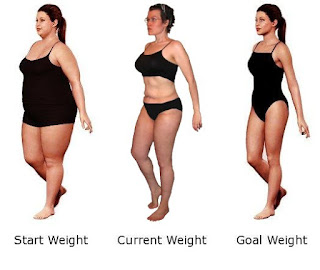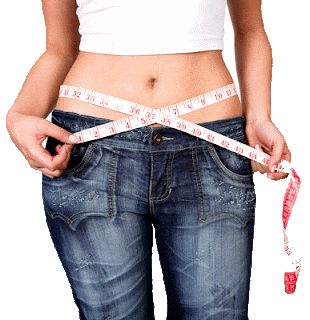For whatever reason, people get it in their mind that when they do decide to lose weight, it should be done quickly. This is such a huge mistake! Sure, you're probably excited to shed a few pounds or finally start using that gym membership but its not only very unhealthy to lose weight too fast, you have a high chance of gaining it all back and then some.
When you cut too many calories out of your diet, your metabolism slows down significantly so when you do add a normal amount of food back to your diet, you gain weight because your body's so used to fighting to work on a smaller amount of calories. There are Medifast diet coupons available that can be used for a program that can help you lose weight at a healthy pace while feeding your body the nutrients that it needs. So, why is rapid weight loss so bad for you?
- Dehydration – If your body loses water sources before it can start burning fat, one of two things will occur. Either you will become dehydrated or you will retain water. If your kidneys don't receive enough water, your liver has to help them work which means it can't do it's own job of turning fat into energy.
- Malnutrition – Your body needs an appropriate amount of vitamins and minerals to properly function. These essential nutrients play key roles in the health of your brain, nervous system, bones, organs and cells.
- Fatigue – Your body needs nutrients to provide you with energy. Ideally, you will actually eat five to six small meals throughout the day so your cells and organs are constantly receiving a steady supply of vitamins and minerals. When you cut too many calories, your body goes into survival mode and holds onto the food you eat rather than using it for important functions or supplying you with energy.
- Appearance – Losing an excessive amount of weight in a short period of time will actually wreak havoc on your appearance. Not only does your hair, skin and nails become dull and often brittle, you make yourself vulnerable to stretch marks and flabby skin. You need to build muscle while you shed weight so you don't end up with extra folds of skin and also when your skin shrinks or expands too quickly, stretch marks are prevalent which are certainly not easy to get rid of!
Starting a new diet can be exciting but you can only really be successful long-term if you do it right. Be safe, allow your body to lose weight at a slow pace and the pounds are more likely to stay off. Not to mention, you'll feel and look a lot better!
About the Author
Melissa Cameron enjoys spending time with her husband and two kids and her passion is digital photography. She found herself wondering, “Does Nutrisystem diet work?”, after failing with some yo-yo dieting. Nutrisystem helped her and her whole family change their eating habits and they have all become healthier which also translated to the weight loss she had been looking for.
This article is written by Weight Loss Triumph.
If you want to write for ‘HealthTips’, please check out our posting guidelines.

One of the most popular but least understood sports supplements on the market is creatine monohydrate. Creatine is a compound that is made naturally in our liver, kidneys and pancreas, before being secreted into the blood and transported to tissues. It acts as an energy replenisher, and its chemical name is methylguanido-acetic acid.
It has a few key benefits, the first of which is that it replenishes ATP. This is the molecule that's broken down to release energy for muscles to contract. A study has shown that more ATP can be stored from creatine than from food, and because muscles can store ATP, this allows you to maximise the amount stored in your body. It gives you more energy to lift heavier weights, train harder and at a higher intensity. Creatine also promotes muscle growth by stimulating the synthesis of proteins. The more creatine stored in a muscle, the more water is drawn into it making it fuller and stronger. Increasing the volume of muscles in this way helps to trigger protein synthesis, minimise protein breakdown and increase glycogen synthesis. If a muscle is trained properly it could also lead to enhanced muscle growth.
It can act as a lactic acid buffer too, which will help improve exercise recovery time. Lactic acid is a bi-product of anaerobic exercise, such as weight training, when oxygen doesn't reach the muscles. It's lactic acid which produces the burning sensation when a muscle is tired. Creatine helps to delay the onset of fatigue by acting as a buffer for the lactic acid. Creatine can help you gain weight too, which is a result of an increase in muscle tissue. The biggest increases are usually seen during the first month of its use.
Creatine monohydrate is the most popular form of creatine, because its virtually tasteless, dissolves well in water and is the most effective.
Whilst numerous studies show that the use of creatine monohydrate is safe, even in large quantities, there are some side effects. It can cause mild irritation to the stomach and nausea for a short while, due to the amount of water retention caused by taking the supplement. This can be unpleasant, but is harmless and minimised if you consume lots of fluid.
This article is written by Sci-MX Nutrition.
If you want to write for ‘HealthTips’, please check out our posting guidelines.

In a climate where the FDA (Food and Drug Administration) are dubious as to whether diet pills can be safe enough for consumption, surgery has become even more popular. The latest advancement is that of the stomach pacemaker.
The pacemaker works like a heart pacemaker where a stimulator and sensor are placed into the stomach. The stimulator makes the brain and the stomach feel full. As soon as one begins to eat, the stimulator begins to work. The patient feels full after a certain amount of food and then weight loss becomes a possibility.
Out of 65 patients who have had the implant, half have kept it off for a year at least and not have only lost 20% of their original weight but have also managed to keep it off. This sounds like a breakthrough weight loss treatment but surely a 20% weight loss sounds too good to be true.
Some worry that the patients will get used to the impulses over time and that they will continue to eat as normal once they are without the pacemaker. Some doctor’s respond by saying that all patients will find a way around it if they really want to but that if you make the device more aggressive for example, if the device were to make the patient throw up every time they wanted to eat, then the patient would not be taught how to gain control over their eating habits.
Will it be a crutch that patients will not be able to live without or is it something that obese patients will use to learn how to adapt to a way of eating less. What about the psychological reasons that patients have for overeating. When they come off the pacemaker and there are issues that are unresolved, will they not find themselves back at square one? At a time when diet pills are perceived as our worst enemy, are there other options?
This article is written by The Online Clinic.
If you want to write for ‘HealthTips’, please check out our posting guidelines.



Recent Comments
Contact